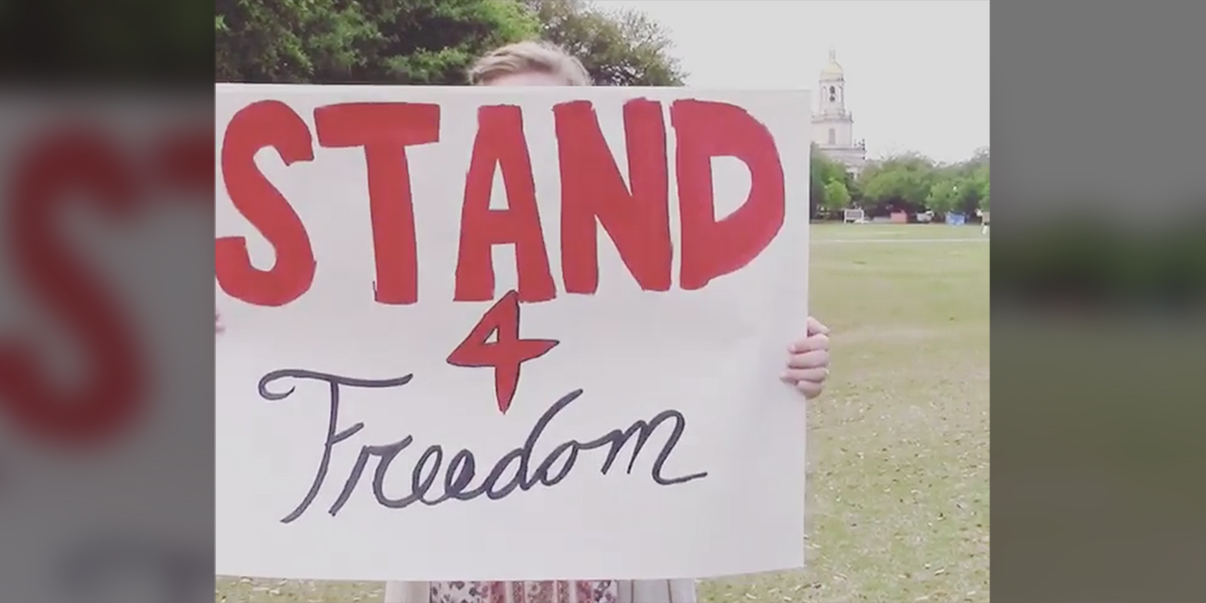How Baylor Bears are working to fight human trafficking

Slavery isn’t just something we read about in history textbooks; sadly, it’s still an issue today, all over the world — including here in the United States. Through force, fraud or coercion, individuals are exploited for sex, physical labor, drug transportation and other acts — treated purely as expendable commodities.
Thankfully, people are standing up to the problem — including many Baylor Bears. Working together and individually, they are raising awareness and understanding of human trafficking, providing support to victims, and ultimately, changing laws and policies to prevent such atrocities from happening in the first place.
Locally, Baylor students, professors and alumni are sharing what human trafficking looks like and how an everyday person can help fight it. Through events like Stand for Freedom, the Baylor chapter of International Justice Mission advocates and raises funds for those forced into sex and labor trafficking. Baylor Social Work professors and researchers have been working with the media to educate the public on what human trafficking looks like and how an everyday person can help stop it. One professor and her students even researched human trafficking patterns along the Texas/Mexico border, then helped churches there develop methods to combat it.
Just last month, Baylor’s Academy for Leadership Development Lecture hosted a panel of experts on combating human trafficking. Among the featured guests were Baylor alumni Robert Callahan, JD ’06, who volunteers with UnBound to provide advocacy and law services to trafficking victims, and Emily Mills, BA ’99, co-founder of Jesus Said Love, which shares the love of Christ with women in the commercial sex industry.
You might remember Jesus Said Love from this previous blog entry. UnBound is a newer effort, launched in 2012 by yet another Baylor alumna, Susan Peters, BA ’86; it works to mobilize the church and local communities to fight human trafficking through prevention, training and survivor advocacy. Those efforts have spread beyond Waco, with UnBound chapters now up and running in Fort Worth, Houston, Seattle, Southern California, even Greece and Mongolia.
And in our nation’s capitol, two Baylor alumni — Tim Head, BA ’98, MSW ’04, JD ’08, the executive director of the Faith and Freedom Coalition, and Victor Boutros, BA ’98, a former attorney in the U.S. Department of Justice and a founding director of The Human Trafficking Institute — recently were part of a group that met with President Donald Trump to discuss ways to assist victims of human trafficking and to identify and prosecute trafficking cases.
How can you get involved? “Get to know the needs within your community,” says Dr. Elizabeth Goatley, a Baylor social work professor. Human trafficking looks different in every community, and its causes can range from illiteracy to homelessness to an inability to speak English. Every city, every neighborhood has different needs and struggles, and therefore, different solutions. And last but not least, Goatley says, “people should pray and support anti-human trafficking organizations.”
Sic ’em, Bears, for fighting for those in need!
(Know of other Baylor Bears we missed in this round-up who are also fighting human trafficking? Let us know!)

